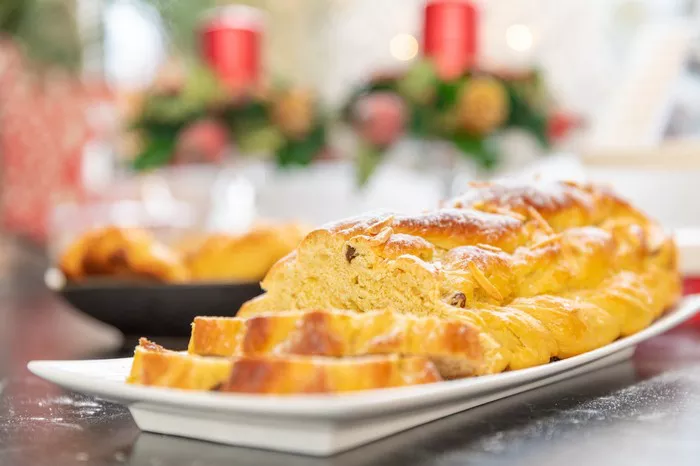Founded in the heart of India, Poona Bakery has been synonymous with quality baked goods for over three decades. With a rich heritage of baking excellence, Poona Bakery has established itself as a beloved brand known for its delectable pastries, savory snacks, and artisanal bread. From traditional Indian sweets to international delights, Poona Bakery caters to the diverse tastes of its loyal customers, offering a wide range of products made with the finest ingredients and time-tested recipes.
New Poona Bakery Franchise Initial Investment
Owning a New Poona Bakery franchise presents a lucrative opportunity for aspiring entrepreneurs looking to venture into the thriving bakery industry. However, like any business endeavor, it requires a substantial initial investment to get started. The initial investment for a New Poona Bakery franchise typically includes franchise fees, equipment costs, real estate expenses, and initial inventory purchases.
Franchise fees serve as the primary entry point into the Poona Bakery network, granting franchisees access to the brand’s established reputation, business model, and support system. These fees can vary depending on factors such as the location’s size, market potential, and regional demand. Additionally, franchisees are responsible for acquiring essential baking equipment, including ovens, mixers, refrigeration units, and display cases, which constitute a significant portion of the initial investment.
Real estate expenses encompass the costs associated with securing a suitable location for the bakery outlet. Factors such as lease agreements, property renovations, and location-specific permits contribute to this category of expenditure. Moreover, franchisees must allocate funds for the initial purchase of inventory to stock their shelves with Poona Bakery’s signature products, ensuring a seamless transition into business operations upon opening.
New Poona Bakery Franchise Ongoing Expenses
While the initial investment lays the foundation for launching a New Poona Bakery franchise, ongoing expenses are crucial considerations for sustaining long-term profitability. These expenses encompass various operational costs incurred in day-to-day business activities, including rent, utilities, labor, ingredients, marketing, and royalties.
Rent constitutes a significant portion of ongoing expenses, as franchisees must continue to pay lease payments to maintain their bakery outlet’s physical presence. The location’s size, amenities, and geographical location influence rental costs, with prime locations commanding higher rates. Utilities such as electricity, water, and gas are essential for powering baking equipment and maintaining optimal operating conditions within the bakery premises.
Labor expenses encompass wages, salaries, and benefits for employees involved in bakery operations, including bakers, sales associates, and administrative staff. Proper staffing is critical for ensuring efficient production, customer service, and administrative support, thereby contributing to the overall success of the franchise.
Ingredients constitute a recurring expense for New Poona Bakery franchisees, as they must continually replenish their inventory of raw materials to sustain production. The quality and availability of ingredients, as well as market fluctuations in pricing, can impact ingredient costs and ultimately affect the franchise’s bottom line.
Marketing expenses are essential for promoting the New Poona Bakery brand, attracting customers, and driving sales. Franchisees may allocate funds for local advertising campaigns, social media marketing, promotional events, and loyalty programs to enhance brand visibility and customer engagement within their target market.
Royalties represent ongoing payments made by franchisees to the franchisor in exchange for continued access to the Poona Bakery brand, support services, and ongoing business development initiatives. These royalties are typically calculated as a percentage of gross sales and contribute to the franchisor’s overall revenue stream.
New Poona Bakery Franchise Financial Projections and ROI
Before committing to a New Poona Bakery franchise, prospective franchisees often seek financial projections to assess the investment’s potential return on investment (ROI). These projections provide valuable insights into the expected revenue, expenses, and profitability of the franchise over a specified period, typically ranging from three to five years.
Financial projections take into account various factors, including sales forecasts, cost estimates, market trends, and competitive analysis, to paint a comprehensive picture of the franchise’s financial performance. Sales forecasts are based on historical data, market research, and industry trends, providing an estimate of the bakery outlet’s revenue potential under different scenarios.
Cost estimates encompass both initial investment and ongoing expenses, allowing franchisees to understand the full cost structure associated with owning and operating a New Poona Bakery franchise. By accurately projecting expenses such as rent, utilities, labor, ingredients, marketing, and royalties, franchisees can better manage their finances and plan for future growth.
Market trends and competitive analysis help contextualize financial projections within the broader industry landscape, identifying opportunities for growth, potential threats, and competitive advantages. Franchisees can leverage this information to formulate strategic initiatives, differentiate their offerings, and capitalize on emerging market trends to maximize ROI.
In evaluating the financial viability of a New Poona Bakery franchise, prospective franchisees should consider various factors, including initial investment requirements, ongoing expenses, financial projections, and ROI potential. While owning a franchise entails risks and challenges, the strength of the Poona Bakery brand, coupled with robust support from the franchisor, can provide a solid foundation for entrepreneurial success in the bakery industry.
Conclusion
In conclusion, the cost analysis of owning a New Poona Bakery franchise requires careful consideration of both financial and operational factors to assess its profitability and ROI potential accurately. By conducting thorough due diligence, prospective franchisees can make informed decisions and embark on a rewarding journey as proud ambassadors of the Poona Bakery brand.

